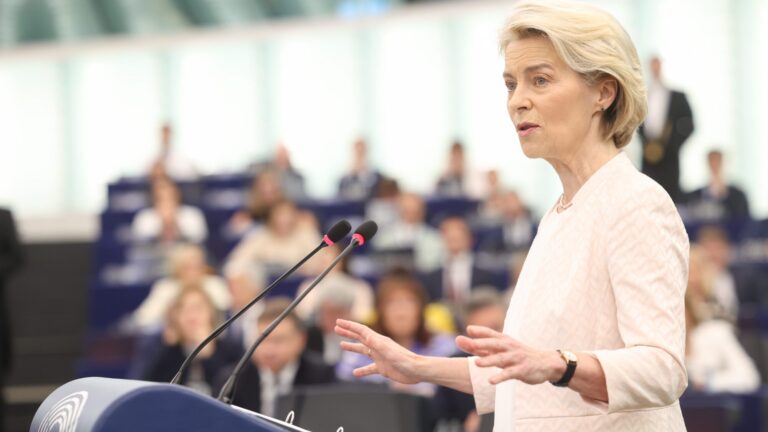With Labour highly likely to take office some time this year, the European Union is preparing to pull the UK back into its orbit.
Brussels officials have proposed that Britain sign a free movement-style deal for Europeans in a move that has been widely recognised as a thinly veiled attempt to woo Labour leader Sir Keir Starmer.
Ben Harris-Quinney, chairman of the Bow Group conservative think tank, told The European Conservative that such a deal would “double down on already all-time record immigration, underscoring yet another example of foreign globalist interests riding roughshod over the stated democratic will of the British people” as expressed in the 2016 Brexit referendum.
The proposed deal, published by the European Commission on Thursday, would make anyone aged 18-30 eligible for a new visa allowing them to travel to any EU member state for up to four years to work, study, or volunteer. Currently, Britons wanting to stay in a bloc country for more than 90 days must apply for a visa.
Agreeing to such a deal would hardly be out of character for Labour, which has said it would like to go on a “date” with Brussels in the first instance to rekindle relations. In fact, Labour London Mayor Sadiq Khan—who weirdly seems to count foreign policy among his official responsibilities—actually called for a ‘youth mobility agreement’ with the EU just three months ago.
Starmer has already ruled out the return of free movement, and a Labour spokesperson responded to the Commission’s proposal saying that the party “has no plans for a youth mobility scheme.” But it is not hard to imagine Labour’s position changing once it has stopped trying to get into office and is actually there—not least because Starmer, who once pushed for a second Brexit referendum to undo the first one, has made explicit his desire for the UK to have “closer” ties with the EU. It is also worth noting that the Commission is already trying—however unconvincingly—to frame its proposal as something quite different to a freedom of movement deal, which Starmer could use in his favour.
Envisioning what such a deal would mean for the UK, Ben Harris-Quinney told this publication:
One of the major reasons the EU didn’t work for the UK is that the percentage of UK citizens that speak a foreign language fluently is negligible. Whilst many felt they valued the opportunity to work in Europe, very few were able to take it.
It meant far more people migrated from the EU to the UK to work than vice versa.
This policy of mass immigration drove property prices up and wages down. It was the main reason why the public voted to leave the EU.
And all these problems, it appears, could very soon be back on the cards, whatever Labour figures tell us now.





